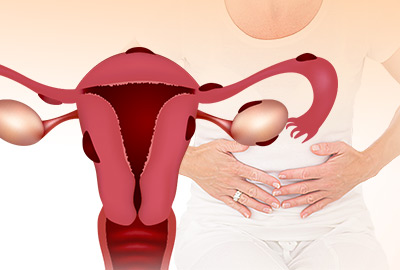Contraceptives, or birth control pills, and irregular periods often go hand-in-hand for many women who are trying to find regularity in their menstrual cycles. Nevertheless, there is important information to know regarding each before deciding the best route for your reproductive health.
Continue reading to learn more about birth control pills and irregular periods, including what each are, if birth control pills regulate or disrupt periods, and more.
What Are Irregular Periods?
Irregular periods are different from woman to woman; however, they are generally accepted as those that diverge from what is considered normal for her, including those that are missing, longer, shorter, lighter, heavier, or painful.
Healthy menstrual cycles range from 21 and 35 days with 28 days being accepted as the average. Periods generally last for four to seven days of that cycle. Also, it is said that most women with a regular cycle have between 9 and 12 periods a year.1
Where there are many factors that influence periods, irregular periods are largely caused by hormonal imbalance and various disorders affecting the reproductive system, polycystic ovary syndrome (PCOS) and endometriosis being two of them.
We will soon see how contraception may also play a role.
What are Birth Control Pills?
Birth control pills, also called “the pill,” work by changing the levels of sex hormones in a woman's body, specifically estrogen and progesterone, to prevent pregnancy.
The artificial hormones in birth control prevent ovulation - the release of the egg from the ovary - and thicken cervical mucus to prevent sperm from reaching the ovary.
While preventing pregnancy is the main mode of action of birth control pills, they can also be used as treatment for irregular periods, which is discussed below.
Do Birth Control Pills Regulate Irregular Periods?
The answer is yes. For many women, birth control can alter the entire menstrual cycle, from its length to the duration, frequency, and flow of menstrual bleeding.
As such, women often use it to regulate irregular periods, starting with a dose low enough (usually) to provide desired results.
Because there are many different types of birth control pills with varying amounts of hormones, women should talk with their doctors about which pills works best for their specific hormonal needs. Birth control for perimenopause takes into account the specific needs of aging women.
Do Birth Control Pills Cause Irregular Periods?
On the other side of the spectrum, birth control can throw off menstrual cycle patterns, too. Any exogenous hormone regimen has this ability.
It is said that unscheduled bleeding and spotting can occur during the first few months of implementation, generally stopping with time. This can continue post-pill use as well.
Moreover, post-pill amenorrhea (no periods) can happen, during which the body takes time to return to normal hormone production since the pill was preventing it from producing its own. Again, this lasts for around three months.
Treatments for Irregular Periods Instead of Birth Control
Because of the numerous side effects and long-term risks associated with taking birth control pills, many women are steering to more natural methods for period health.
As such, natural and effective irregular periods treatments focus on lifestyle changes alongside the use of alternative medicine used for years in combatting period abnormalities. These initiatives will not only regulate cycles, but also relieve other menopause symptoms, such as hot flashes, night sweats, mood swings, and more.
On a final note, women who are looking for contraceptive methods that do not involve exogenous hormone use may implement the barrier method or speak with their doctors to find a solution that works best for them.
Sources
- Center for Young Women's Health. (2016). Birth Control Pills: A Guide for Parents. Retrieved November 13, 2019, from https://youngwomenshealth.org/parents/birth-control-pills-parent/
- Cleveland Clinic. (2019). Abnormal Menstruation (Periods) | Birth Control: The Pill. Retrieved November 13, 2019, from https://my.clevelandclinic.org/health/diseases/14633-abnormal-menstruation-periods | https://my.clevelandclinic.org/health/drugs/3977-birth-control-the-pill
- Harvard University. (2008). Taming the Cycle: How Does the Pill Work? Retrieved November 13, 2019, from http://sitn.hms.harvard.edu/flash/2008/issue40/
- Mayo Clinic. (2019). Menstrual cycle: What's normal, what's not | Birth control pill FAQ: Benefits, risks and choices. Retrieved November 13, 2019, from https://www.mayoclinic.org/healthy-lifestyle/womens-health/in-depth/menstrual-cycle/art-20047186 | https://www.mayoclinic.org/healthy-lifestyle/birth-control/in-depth/birth-control-pill/art-20045136
Footnotes:
- Center for Young Women's Health. (2018). Menstrual Periods. Retrieved November 13, 2019, from https://youngwomenshealth.org/2010/04/21/menstrual-periods/




